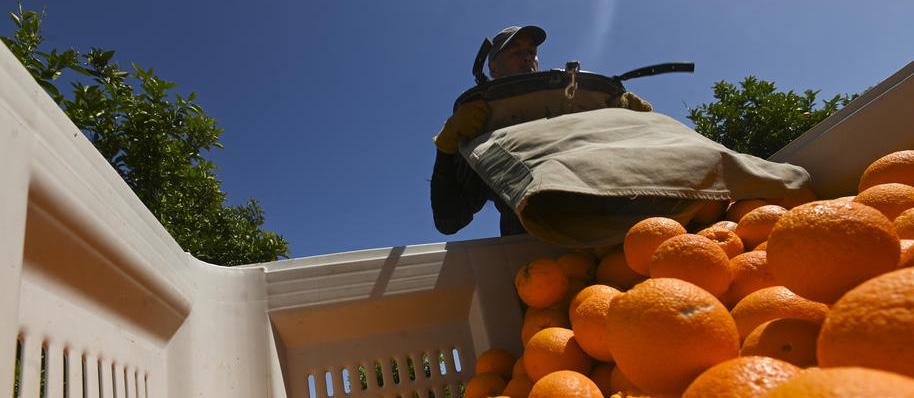
6 minute read
Malta Insights

CorporateDispatchPro


SIX IN TEN TERTIARY GRADUATES ARE WOMEN
Women made 57 percent of total tertiary education graduates in 2019, up from 55 percent in 2017. Data published on the International Day of Women by the National Statistics Office shows that female students outnumbered males in all fields of study except for Information and communication technologies and Engineering, manufacturing, and construction.
The fields of Education and Health and welfare have the highest proportion of female students, at 79 percent and 73 percent, respectively.
With regards to employment, women made 40 percent of the active workforce in 2019, just under 102,500. There were more female workers in Clerical support occupations and Service work including sales while males made more than six in every ten employees in Elementary occupations, Plant and machine operation jobs, Technical and associate professions, and management positions. Professional occupations were split down the middle, but the average annual basic salary for women in this area is more than €4,000 lower than for men. This is a common pattern across all occupations with an average overall salary of €17,771 for women and €20,974 for men, according to 2019 figures.






CorporateDispatchPro

Malta ranks 4.5 points below the EU average on the Gender Equality Index, scoring 63.4 out of a possible 100 measured by 31 indicators. Sweden ranks first with a score of 83.8 while Greece registered the lowest score at 52.2.
There were 248,802 women in Malta as at December 2019, equivalent to 48 percent of the total resident population. Just over 40,000 were in the 30-39 age group, the largest cohort by age. Men outnumber women in all age brackets up to 60, where the population of women is higher.
TOURIST NUMBERS IN JANUARY A TENTH OF LAST YEAR
Total inbound tourism in January was estimated at around 13,800, a decrease on 90.8 percent compared with the same month last year. Data by the National Statistics Office show a total tourist expenditure of €11.7 million, down from €123.6 billion in January 2019.
Eight in every ten visitors were from EU countries while two-fifths of non-EU tourists arrived from the UK. France was the largest market, with 3,292 visitors, followed closely by Italy with 3,233.



CorporateDispatchPro

Half of the guests were within the 25-44 age group which, at an 88.4 percent decline, suffered the lowest decrease year on year among all age brackets.
Just over 83 percent of visitors came to Malta for holiday purposes and another 1,553 were on business trips. The total number of inbound tourism by air reached 12,123, less than a tenth of the volume registered in 2020.
CONSTITUTIONAL EXPERTS DISAGREE OVER INTERPRETATION ACT REFORMS
A number of constitutional experts have critiscised proposals by government to amend the Interpretations Act in order to give more direct power to its regulators and other agencies in dishing out penalties to individuals and business in a number of regulator sector.
The government’s move appeared to be related to Constitutional challenges being brought forward against substantial fines imposed in the area of anti-money laundering. The closeness to an expected judgement by Moneyval was also highlighted. The Constitutonal experts pointed out that the European Convention on Human Rights states that in the determination of his civil rights and obligations or of any criminal charge against him, everyone is entitled to a fair and public hearing within a reasonable time by an independent and impartial tribunal established by law.

CorporateDispatchPro

GDP FELL BY €770 MILLION IN 2020
Gross Domestic Product for last year amounted to €12.8 billion, a decrease from €13.6 billion in 2019 but still higher than 2018 (12.6 billion). Figures by the National Statistics Office show a 5.7 percent GDP decline in nominal terms in 2020 from the production output side, with a 7.0 percent drop in volume terms.
The first quarter was the only to register an increase compared to the previous year (4.0%) before a sharp drop of 13.0 percent in the second quarter. The decrease was 7.5 percent in the third quarter and 5.0 percent in the final quarter.
Gross Value Added in 2020 fell by 4.3 percent in nominal terms, mainly driven by a decrease of 6.7 percent across Services. Accommodation and food service activities lost 64.7 percent, the biggest registered decline among Services. At the other end of the scale, GVA in Information and communication activities increased the highest with 13.6 growth from 2019.
Besides Services, Agriculture and fishing as well as Industry recorded decreases of 10.7 percent and 1.0 percent, respectively. Construction, on the other hand, reported an increase of 2.9 percent year-on-year. In 2020, net taxes on products contributed to a 17.1 percent decline in volume terms.



CorporateDispatchPro

UNEMPLOYMENT RATE BELOW EU AVERAGE
Malta registered the fourth-lowest unemployment rate in the EU in January 2021.Figures by Eurostat show that the total unemployment rate in Malta stood at 4.4 percent in the first month of 2021, below the EU27 average of 7.3 percent.
Poland registered the lowest rate, at 3.1 percent, followed by Czechia (3.1%) and the Netherlands (3.6%).
The highest total unemployment rate was registered in Poland, at 16.0 percent. Lithuania and Sweden recorded the next highest rates at 9.6 percent and 8.8 percent, respectively. France and Latvia are the other two members states to experience a rate above the European average.
The data shows over 15.6 million people in unemployment across the EU up from 14.2 million in January 2020. In the euro area, registered unemployed rose by nearly a million over the year to reach 13.3 million, equivalent to a rate of 8.1 percent. In Malta, there were 12,000 unemployed in January, a rise from 10,000 from the same month last year, but level with the final three months of 2020.
WAGE SUPPLEMENT EXTENDED
The government has announced the extension of the wage supplement until the end of the year, arguing that such a move was required to ensure a strong economic recovery and safeguarding employment.
Finance Minister Clyde Caruana said that Government has spent 360 million euro on the wage supplement, equivalent to 3% of GDP. He recalled that the country’s economy saw a 5.7% drop in GDP in nominal terms in 2020, meaning that had government not intervened, the economic collapse would have been far greater.









